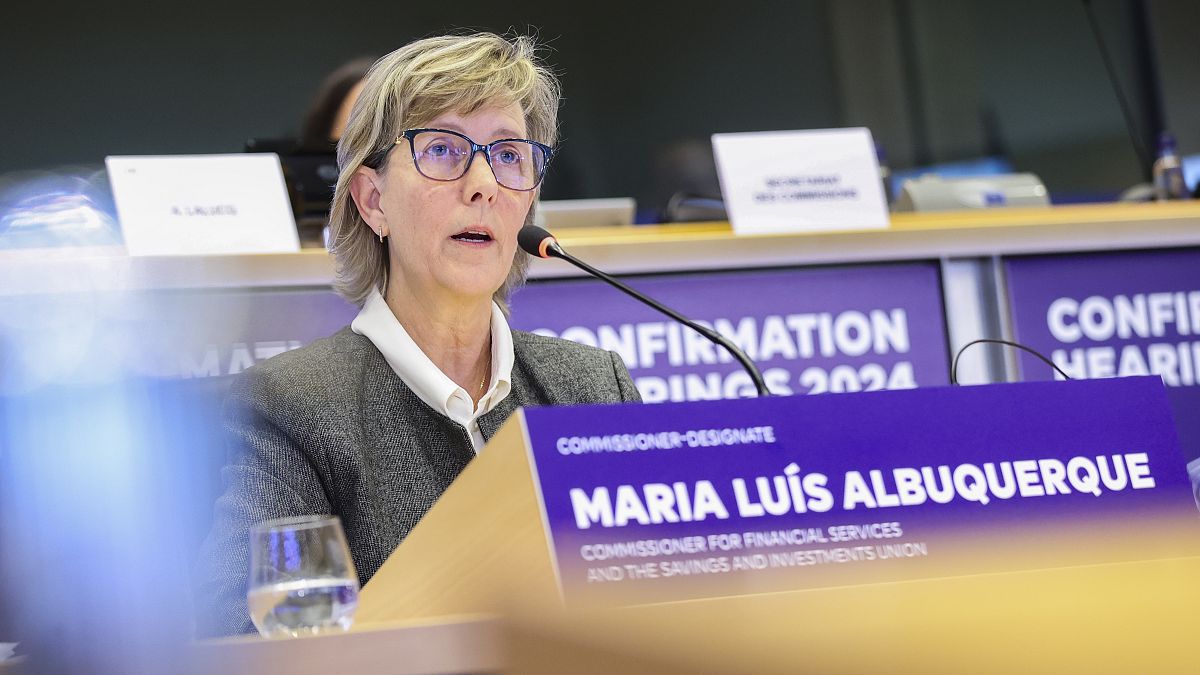Portugal’s pick for EU financial services commissioner, Maria Luís Albuquerque, faced scrutiny during a three-hour hearing in the European Parliament on Wednesday. In the midst of concerns over potential rollbacks of post-crisis banking rules by the incoming Trump administration, Albuquerque emphasized the importance of maintaining financial stability and regulatory protections. She rejected calls to slash existing insurance laws to boost economic competitiveness, citing the need for a proper framework and international cooperation in financial regulation.
With the delay in implementing measures to strengthen banks against market risk and concerns over the US potentially deviating from international norms set by the Basel Committee on Banking Supervision, Albuquerque emphasized the importance of upholding financial protections. Her private sector career, including work at Arrow Global and Morgan Stanley, came under scrutiny for potential conflicts of interest, but she defended her roles as independent, non-executive director as being akin to a regulator rather than an executive within the same company.
During her hearing, Albuquerque proposed few new measures, focusing instead on implementing existing laws to address concerns from businesses about regulatory burdens impeding growth. While her approach may be welcomed by the financial sector, she appeared to dismiss calls for cutting capital requirements on insurers and pension funds to enable investments in innovative companies. She highlighted the ongoing work needed to implement reforms such as Solvency 2, indicating a cautious approach to regulatory changes.
As the European Parliament continues hearings for candidates vying to become European Commissioners, concerns have been raised regarding the selection of Swedish conservative Jessika Roswall to lead the European Green Deal. If approved by the Parliament, Albuquerque could soon replace Ireland’s Mairead McGuinness as the EU’s top financial services official. The process, which involves assessing candidates’ qualifications and addressing potential conflicts of interest, will shape the future direction of financial regulation in the EU.
In a rapidly changing global financial landscape, Albuquerque’s stance on preserving financial stability and regulatory standards is crucial for safeguarding the EU against potential risks. As discussions surrounding post-crisis banking rules and international regulatory cooperation intensify, her experience and approach will play a significant role in shaping the EU’s financial policies. By navigating the complex interplay between economic competitiveness and regulatory safeguards, Albuquerque aims to strike a balance that ensures sustainable growth while upholding the integrity of the financial system.
Overall, Albuquerque’s testimony underscored the need for a nuanced approach to financial regulation that takes into account both domestic and international considerations. While advocating for the implementation of existing laws and regulations, she also acknowledged the importance of ongoing dialogue with international partners to establish a level playing field for financial institutions. As the EU grapples with the challenges posed by a changing regulatory landscape, Albuquerque’s leadership as a potential EU financial services commissioner will be instrumental in guiding the region towards a more resilient and competitive financial sector.











